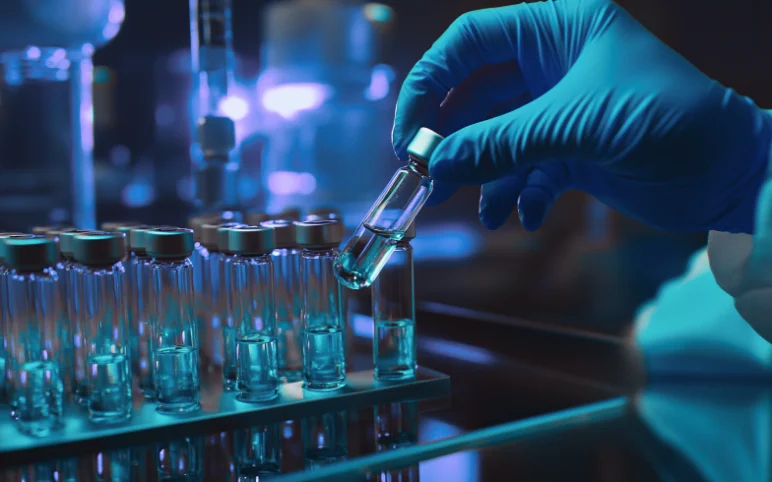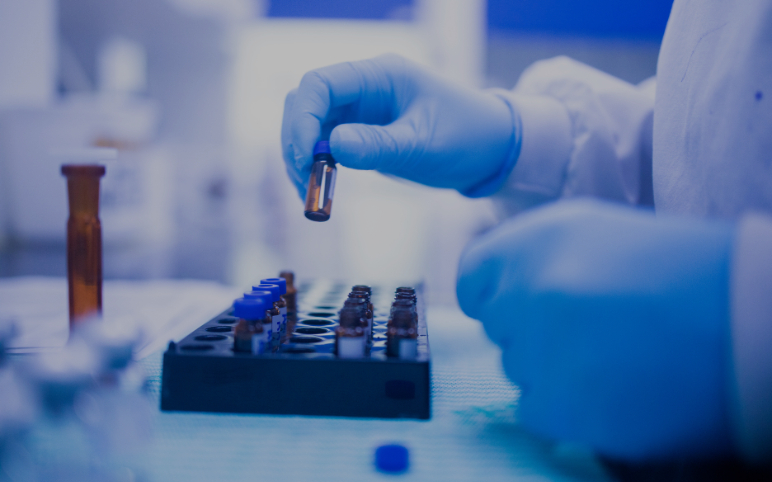Unveiling Amyotrophic Lateral Sclerosis (ALS) Treatment Frontiers: Navigating Challenges, Overcoming Setbacks, and Emerging Therapeutic Horizons
Sep 24, 2024
DelveInsight forecasts that with the launch of 15+ emerging therapies alongside existing treatments, the ALS treatment market is anticipated to surpass USD 4 billion across the 7MM by 2034.
Currently, there is no cure for ALS and no effective treatment to halt or reverse the progression of the disease. As per our analysis, the diagnosed prevalent cases of ALS in the US were nearly 24K in 2023. Therefore, the management of ALS remains supportive and symptom-based. The approved drugs to treat ALS include RILUZOLE, RADICAVA, TIGLUTIK, EXSERVAN, and QALSODY. Riluzole, the first approved drug for the treatment of ALS, has since been recommended as first-line therapy for ALS in many countries. Having been available in the US for over two decades, riluzole is now offered in generic forms as well. TIGLUTEK/TEGLUTIK and EXSERVAN are various branded formulations of this medication.
RADICAVA: Evolving Sales Trends and the Rise of RADICAVA ORS in ALS Treatment
RADICAVA (edaravone), the second approved drug for treating ALS patients, arrived on the market decades later with a notably high price tag. Following acute stroke approval, it was approved for the treatment of ALS in Japan in June 2015. Later, the FDA approved RADICAVA in May 2017. In the US, however, due to its high cost and insurance policies, RADICAVA’s use has been limited to patients in the early stages of ALS. Given the clear need for further evidence of RADICAVA’S effectiveness, in May 2019, Mitsubishi Tanabe Pharma GmbH notified the CHMP of its will to withdraw its application for a marketing license for RADICAVA to treat ALS.
Downloads
Click Here To Get the Article in PDF
Recent Articles
- Merck’s Keytruda Wins Another FDA Approval; Sanofi Pauses Trial of Myasthenia Gravis Drug, tolebr...
- Thrombolytic Sciences’ trial; NurOwn for ALS; Biosimilar receives approval; Trelegy Ellipta for t...
- FDA Grants Orphan Drug Designation for Ractigen’s RAG-21 in ALS; Intellia’s Nexiguran RMAT for AT...
- Spasticity
- AstraZeneca’s Ultomiris; HebaBiz’s Siroquine; Pfizer’s XELJANZ; Bristol Myers S...
Analysis of RADICAVA’s global sales revealed a decline from approximately USD ~200 million in 2020 to USD ~110 million in 2022. The drug’s IV administration and the introduction of RADICUT generics in Japan contributed to this trend. Mitsubishi addressed this issue by developing RADICAVA ORS, an oral suspension, which was recently approved in May 2022 in the United States and in December 2022 in Japan. This approval of RADICAVA ORS led to a significant sales increase, with projected revenues of USD 900 million by 2034 across major markets, as per DelveInsight. However, the chances of getting launched in Europe remain uncertain.
RELYVRIO: A Rollercoaster Journey of Approval, Acceptance, and Withdrawal
RELYVRIO received FDA approval in September 2022 based on data from a Phase II CENTAUR trial. Originally, the FDA had not planned on reviewing RELYVRIO’S application until data from the PHOENIX trial became available. However, the agency reconsidered in the wake of pushback from patient advocacy groups. Earlier, in March 2022, the Peripheral and Central Nervous System Drugs Advisory Committee (PCNSDAC) voted against RELYVRIO due to insufficient data establishing its effectiveness. Concerns were raised about the robustness of AMX0035’s data and high ALSFRS-R scores in the placebo group. However, in early September 2022, the committee voted in favor of AMX0035, announcing that the available evidence of effectiveness was sufficient to support its approval. The lack of ALS treatment options led to a wave of support for RELYVRIO.
RELYVRIO gained rapid acceptance in the US market from 2022 to 2023. However, the FDA’s approval of RELYVRIO allowed Amylyx to make tens of millions of dollars in profits from selling a drug that turned out to be worthless. Amylyx charged USD 163,000 a year for RELYVRIO, leading to USD 380.8 million in sales in 2023 and USD 22.2 million in 2022. About 4,000 patients in the United States received the treatment. Individuals and payors needlessly spent hundreds of millions of dollars, unjustly enriching the company. All these consequences were preventable, and the FDA needs to take steps to ensure that it never again approves a drug without clear evidence of efficacy.
Across the pond, drug reviewers at the European Medicines Agency confirmed their rejection of the drug under the brand name ALBRIOZA in October 2023 after Amylyx appealed a previous negative opinion. Following recently presented topline results from the PHOENIX trial, which did not meet the prespecified primary or secondary endpoints, Amylyx Pharmaceuticals announced the removal of RELYVRIO from the ALS treatment market. The drug is no longer available to patients as of April 4, 2024, following several discussions between Amylyx, the US FDA, and Health Canada. However, patients currently on RELYVRIO in the US and Canada have the option to continue taking it as part of a free drug program.
ALS Treatment Landscape: Setbacks and New Hope on the Horizon
The withdrawal of RELYVRIO is a big blow to the ALS patient community, leaving behind just three ALS medicines available to US patients, only one of which has been shown to extend survival by several months. However, there has been one bit of good news with the FDA approval last year of Biogen’s QALSODY (tofersen) for ALS associated with a mutation in the SOD1 gene, which accounts for around 2% of all ALS cases. This approval marks a significant advancement in the treatment options available for ALS patients with specific genetic mutations. Biogen receives EMA CHMP recommendation for ALS treatment drug QALSODY. The decision on the marketing authorization for QALSODY is expected in Q2 2024.

After the setback with RELYVRIO, RADICAVA emerges as the leading contender in the current ALS market and is anticipated to achieve the highest revenue. However, it is not the end of the road for Amylyx and ALS. Its candidate AMX0114, an antisense oligonucleotide targeting calpain-2, is set to be evaluated in a first-in-human trial in the second half of 2024.
Although the ALS pipeline holds multiple promising therapies such as Masitinib (AB Science), Ibudilast (MediciNova), Ulefnersen (Ionis Pharmaceuticals), TPN-101 (Transposon Therapeutics) and other various stages of development, the failure rates of clinical trials are quite high for ALS. Therapies like arimoclomol (Orphazyme), levosimendan (Orion Pharmaceuticals), ravulizumab (Ultomiris), and Zilucoplan (UCB Pharma), are some recent failures in the list of therapies for ALS, and more may follow in the future.
The high failure rate in ALS clinical trials is often attributed to the disease’s unclear etiology and complex pathophysiology. Thus far in Q1 2024, both Sanofi and Denali Therapeutics’ SAR443820, as well as Ferrer Internacional’s FAB122, have failed to achieve their primary endpoints in Phase II and III studies, respectively. This is following the failure of Cytokinetics’ reldesemtiv in March 2023 and BrainStorm Cell Therapeutics’ NurOwn in September 2023. However, unlike Ferrer and Cytokinetics, BrainStorm Cell Therapeutics is still fighting for NurOwn, as the company will be initiating a Phase IIIb study for ALS in 2024.
Despite the challenges and setbacks in the ALS treatment landscape, the approval of drugs like Radicava ORS and QALSODY, along with a promising pipeline of emerging therapies, offer hope for improving the lives of ALS patients. However, the high failure rates in clinical trials and the need for clear evidence of efficacy highlight the ongoing challenges in developing effective treatments for this complex and devastating disease.

Downloads
Article in PDF
Recent Articles
- Spasticity
- Top 10 Most Promising Drugs In The Amyotrophic Lateral Sclerosis Treatment Landscape
- Precigen’s PRGN-3006; Yescarta Approved as a First CAR T-cell Therapy for R/R LBCL; Biogen ...
- Business Cocktail
- Amylyx Raises $30M; QurAlis Announces License Agreement Deal With Lilly; COVID-19 Vaccine Updates...



